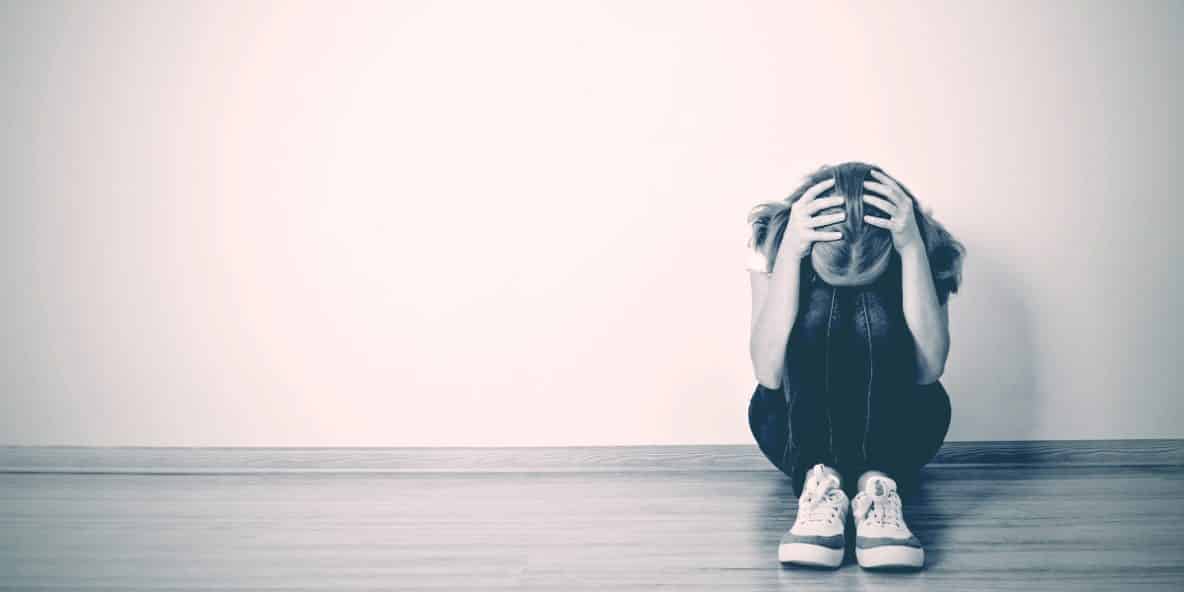
ARE YOU FEELING SADNESS, FEELING DOWN, AND HAVING A LOSS OF INTEREST OR PLEASURE IN DAILY ACTIVITIES?
If they persist and affect our lives substantially, the issue may be depression.
Depression is a common disorder, affecting over 350 million people worldwide. It is a disabling condition that adversely affects a person’s family, work, or school life, sleeping and eating habits, and general health.
Many conditions or events in people’s lives can contribute to depression, including psychological, emotional, physical, environmental, social, or spiritual factors. In some cases, there are genetic tendencies or underlying brain diseases that lead to depression.
Women are 70% more likely than men to experience depression in their lifetime.
Men and women experience depression differently – while women tend to experience sadness and guilt, men often feel restless or angry and are more likely to turn to alcohol and drugs.
Only 50% of people actively seek conventional treatment for depression, although a majority of people do find some relief through treatment.
Women and adults between the ages of 45 and 64 are most likely to meet the criteria for severe depression; however, over 3% of youth ages 13-18 have also experienced a debilitating depressive episode.
TYPES OF DEPRESSION:
Persistent Depressive Disorder: This is a chronic form of depression, formerly known as dysthymia. Sometimes people call it “high functioning” or “smiling” depression.
While symptoms aren’t as severe as MDD, they last for two years or longer.
People with PDD might feel like they’ve always been depressed. In cases of “double depression,” people experience severe episodes of MDD within their usual state of chronic depression.
Seasonal Affective Disorder (SAD): Depression symptoms start and end seasonally, around the same time every year. Most people get depressed in cold, dark winter, but some people’s mood plummets in summer.
Premenstrual Dysphoric Disorder (PMDD): Here, depression symptoms are tied to the luteal phase of the menstrual cycle, starting about one week before your period and ending just after your period.
Though many of the symptoms mirror PMS—irritability, high anxiety, frequent crying—they’re much more severe. They interrupt your ability to work, destroy personal relationships, and can lead to thoughts of self-harm and suicide. This condition was added in 2013 as a form of depression to the DSM-5, the official guide of mental disorders.
Peripartum Depression: New mothers typically develop symptoms of depression and even psychosis within a few weeks of giving birth. It is called postpartum depression.
Perimenopausal Depression: In midlife specifically, the years leading up to menopause, people experiencing this disorder have typical depressive symptoms plus perimenopause symptoms like hot flashes and night sweats.
Substance/Medication-Induced Depressive Disorder: Substance abuse (alcohol, opiates, sedatives, amphetamines, cocaine, hallucinogens, etc.) or taking some medications like corticosteroids or statins, can trigger the symptoms of depression.
Disruptive Mood Regulation Disorder: A child with this juvenile disorder is grumpy and bad-tempered most of the time. They have severe, explosive outbursts with parents, teachers, and peers several times a week. Their overreactions are extreme and inconsistent with their developmental level.
DO I HAVE THE SYMPTOMS OF DEPRESSION?
Below are some symptoms of depression that tend to appear more often in females:
- irritability,
- anxiety,
- mood swings,
- fatigue ruminating (dwelling on negative thoughts),
- Sleep disorders (too much or too little),
- Shifts in appetite and weight (too much or too little),
- Feelings of persistent sadness, guilt, hopelessness, or loss of self-worth,
- Thinking difficulties, such as memory loss, challenges concentrating or making decisions,
- In severe depression, thoughts of death or suicide
- Only women who are unable to cope with these symptoms need medical treatment.
OK, I’m feeling depressed…So now what?
Depression is treatable, and managing symptoms usually involves three components:
Support: This can range from discussing practical solutions and possible causes to educating family members.
PSYCHOTHERAPY: Also known as talking therapy, some options include one-to-one counseling and cognitive-behavioral therapy (CBT).
DRUG TREATMENT: Our doctor may prescribe herbal antidepressants.
When you’re having a depressive episode, it might feel like you’re destined to feel terrible forever.
That’s not true. It’s just what your depressed brain wants you to think.
The hardest step is ignoring that feeling and making an appointment with a doctor and/or mental health professionals, such as a psychologist or psychiatrist.
A mental health professional is the only expert that can help you figure out if you are depressed.
Schedule a Complimentary Consultation.
Proper treatment is important to maintain health that might lead to further problems. If you do find that you require more than preventative maintenance, contact us.
What is the procedure to get the medicine from you?
use the online consultation form on our website. Our doctor team will verify every detail of your email and then recommend the required medicine. After that, you can talk to our doctor on mobile to clear your doubts, and then you can get the recommended medicine through a courier service. Use the online consultation form on our website to write all your problems.
